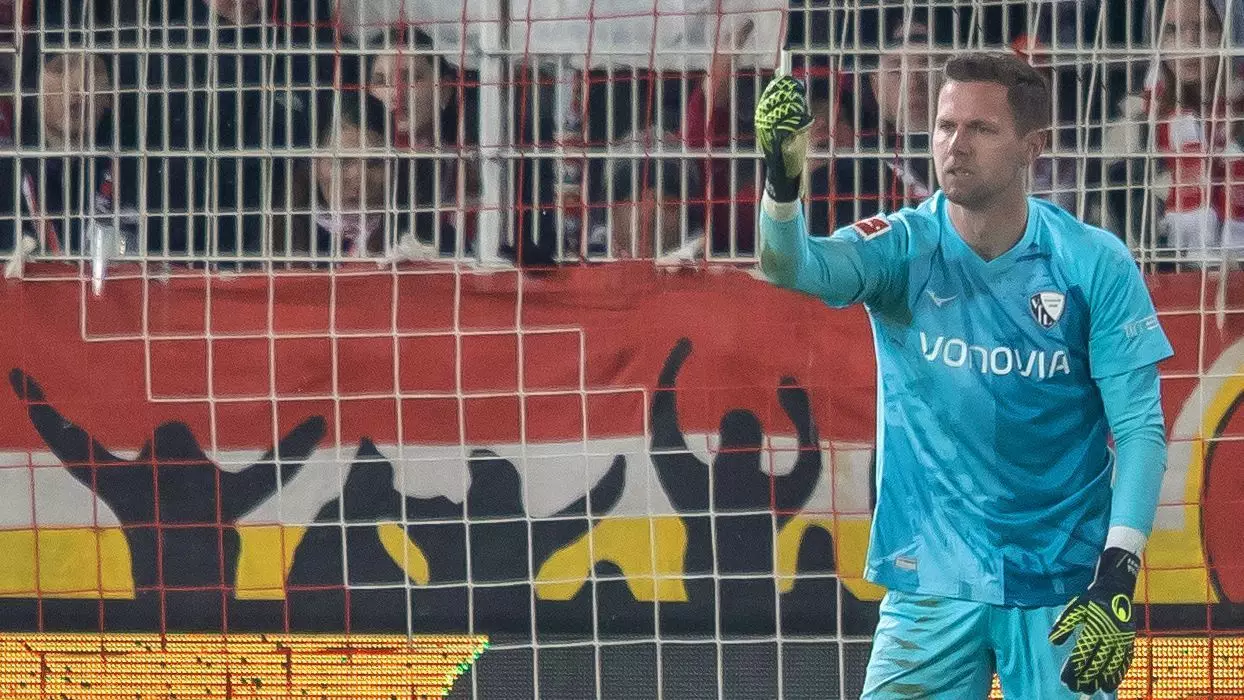In a troubling incident during a Bundesliga match between VfL Bochum and Union Berlin, an object was reportedly thrown from the stands, striking Bochum’s goalkeeper, Patrick Drewes, on the head. This alarming event not only suspended the match temporarily but also cast a shadow on the relationship between players and fans in professional football. Such occurrences raise serious questions about the safety of players and the appropriate conduct of supporters within stadiums, which are often considered sanctuaries of sportsmanship and camaraderie.
Following the incident, both teams displayed remarkable restraint and professionalism as they returned to the pitch to complete the game. However, rather than engage in competitive play, the players opted for a mutual agreement to run down the clock without attempting to score. This decision, made in solidarity with Drewes and the circumstances surrounding the match, exemplifies an important ethical stance taken by athletes, acknowledging the disruption caused by the incident. It was a poignant reminder that, beyond the game itself, player well-being and mutual respect should always take precedence.
Reactions and Implications
Striker Philipp Hofmann’s comments to the media shed light on the severity of the incident, indicating that more than one object had been thrown from the stands. His emphatic critique of the situation emphasized the necessity for fan behavior to match the integrity of the sport. “It’s not acceptable,” Hofmann stated, reinforcing the idea that violent acts, even those not resulting in serious injury, are intolerable in any sporting environment. This situation serves as a catalyst for potential repercussions for the hosting club, Union Berlin, as they may face disciplinary action from the league.
The Aftermath: Safety and Accountability
As the dust settles on this incident, it sparks a broader conversation about player safety in professional sports. VfL Bochum might push for the match result to be recorded as a 3-0 win by default, both as a form of protest and to underline the gravity of the situation. Importantly, Bochum was at a significant disadvantage with only nine players—following Drewes’ injury and an existing red card—introducing a layer of unfairness to the conclusion of the game. This scenario raises many questions: How can leagues better protect their players? What measures can be implemented to prevent such incidents in the future?
Moving forward, the football community must collectively tackle the issues surrounding fan safety and conduct. It is essential for clubs to reinforce policies that discourage irresponsible behavior among supporters and enforce severe consequences for violators. Moreover, leagues should prioritize the emotional and physical well-being of players, ensuring that incidents like this do not slip through the cracks of disciplinary measures. As the landscape of football evolves, positive change hinges on a collective commitment to preserving the integrity of the sport, which must always transcend the thrill of competition.

